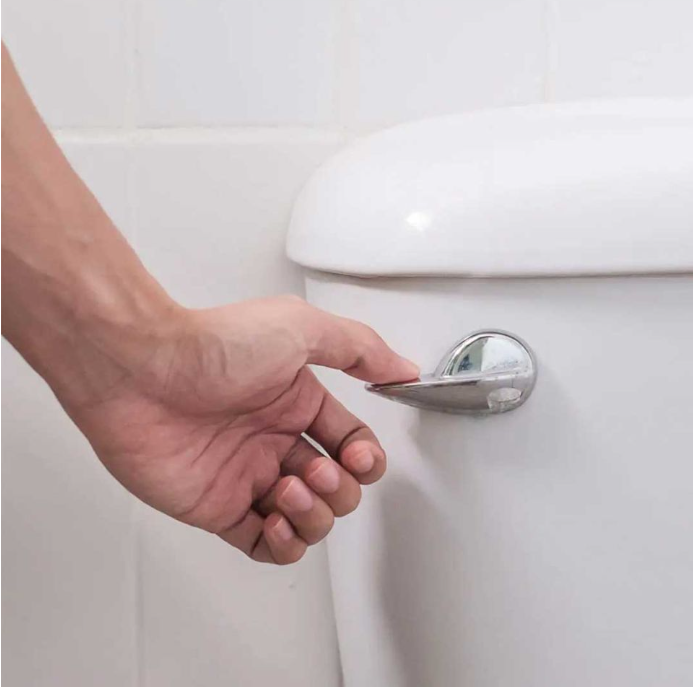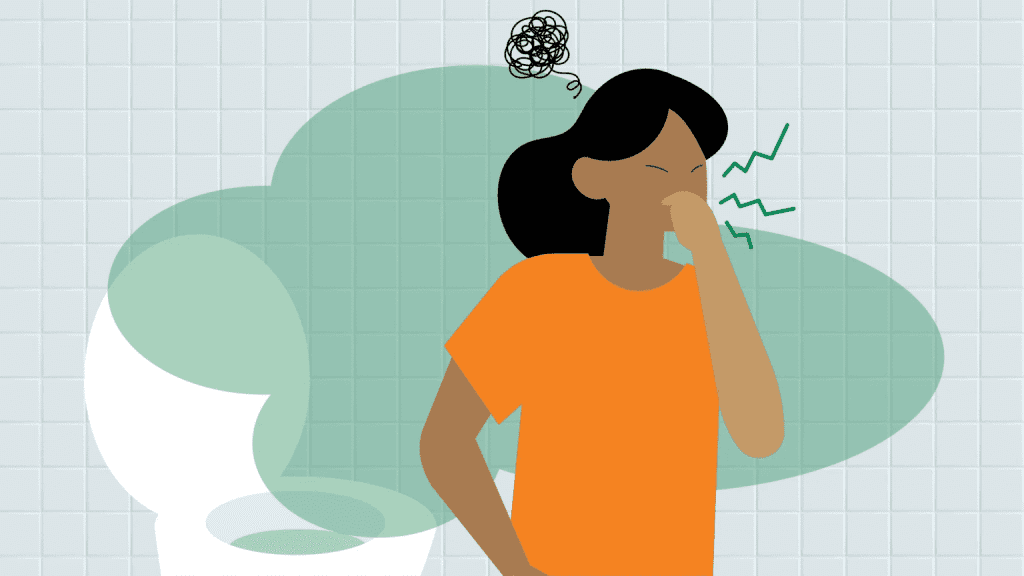Experiencing smelly urine can be concerning, but it’s a common issue many people face. While most cases are harmless and temporary, smelly urine can also indicate underlying health problems. Identifying the cause is the first step in determining whether lifestyle changes or medical attention are necessary. Here are ten potential causes of smelly urine and what you should do in each scenario.

Cause 1: Dehydration – The Role of Hydration in Urine Odor
One of the most common causes of smelly urine is dehydration. When your body doesn’t get enough water, urine becomes more concentrated, leading to a stronger odor. Dehydration can cause urine to appear darker and have a more pungent smell.
What You Should Do: Increase your water intake to stay hydrated. Drinking at least 8 glasses of water daily helps dilute urine, reducing the intensity of the odor.
Cause 2: Dietary Factors – Foods and Drinks That Affect Urine Smell
Certain foods and drinks can alter the smell of urine. Asparagus is infamous for causing strong-smelling urine, but garlic, onions, coffee, and certain spices can also have this effect. These changes are temporary and typically harmless.
What You Should Do: If your urine smells strange after consuming specific foods or beverages, there’s no need for concern. The smell should dissipate once the food has passed through your system. You can avoid or limit these foods if the odor bothers you.
Cause 3: Urinary Tract Infections – Symptoms and Implications
A urinary tract infection (UTI) can make urine smell foul or unusually strong. UTIs are bacterial infections that affect parts of the urinary system, including the bladder and urethra. Symptoms often include a burning sensation during urination, increased urgency, and cloudy or dark urine.
What You Should Do: If you suspect a UTI, seek medical attention. A doctor can prescribe antibiotics to clear the infection, and drinking plenty of water can help flush out bacteria.
Cause 4: Diabetes – How Blood Sugar Levels Impact Urine Odor
Uncontrolled diabetes can cause sweet-smelling urine due to excess glucose in the urine. This can be a sign that blood sugar levels are too high, particularly if accompanied by other symptoms like increased thirst, frequent urination, or fatigue.
What You Should Do: If you have diabetes and notice a sweet odor in your urine, consult your doctor immediately. Proper management of your blood sugar levels through medication and lifestyle changes is critical to preventing complications.
Cause 5: Kidney Infections – Signs and Consequences
Kidney infections, or pyelonephritis, are serious infections that can cause smelly urine, fever, back pain, and general malaise. These infections occur when bacteria spread from the bladder to the kidneys and require prompt treatment.
What You Should Do: Seek immediate medical attention if you suspect a kidney infection. Untreated kidney infections can lead to severe complications, including permanent kidney damage.
Cause 6: Liver Disease – Connection Between Liver Function and Urine Odor

Liver disease can lead to a musty or foul-smelling urine due to the accumulation of toxins that the liver normally filters out. Symptoms of liver disease can include jaundice, fatigue, and dark urine.
What You Should Do: If you suspect liver disease, consult a healthcare provider for a proper diagnosis and treatment plan. Early intervention is crucial to managing liver-related health issues.
Cause 7: Certain Medications – Drug-Induced Changes in Urine Smell
Medications, particularly antibiotics, vitamins (like B-complex vitamins), and chemotherapy drugs, can alter the smell of urine. These side effects are usually harmless but can be alarming if unexpected.
What You Should Do: If your medication is causing smelly urine, it’s usually not dangerous, but consult your doctor if you’re concerned. They may adjust your dosage or suggest an alternative.
Cause 8: Metabolic Disorders – Genetic Conditions Affecting Urine

Metabolic disorders such as maple syrup urine disease or trimethylaminuria can cause distinct urine odors. These genetic conditions affect the body’s ability to break down certain compounds, resulting in unusual smells.
What You Should Do: If you or a family member have a diagnosed metabolic disorder, follow your doctor’s guidance on managing the condition. If you experience new symptoms, seek medical advice for further evaluation.
Cause 9: Bacterial Vaginosis – Vaginal Health and Urine Odor
In women, bacterial vaginosis (BV) can cause a fishy smell in the urine due to an imbalance of bacteria in the vagina. Other symptoms may include vaginal discharge and itching.
What You Should Do: BV can be treated with antibiotics. If you notice these symptoms, schedule an appointment with your healthcare provider for diagnosis and treatment.
Cause 10: Prostatitis – Prostate Infections and Urinary Changes

For men, prostatitis (inflammation of the prostate gland) can lead to smelly urine. It often comes with symptoms like difficulty urinating, pain during urination, and pelvic discomfort.
What You Should Do: If you experience these symptoms, see a healthcare provider. Treatment typically involves antibiotics or other therapies to reduce inflammation and relieve symptoms.
When to Seek Medical Help – Recognizing Serious Symptoms
While many causes of smelly urine are benign, certain symptoms may indicate a more serious condition that requires prompt medical attention. If you notice persistent changes in urine odor, along with blood in the urine, fever, severe pain, or any other unusual symptoms, it’s important to consult a healthcare professional.
Home Remedies and Prevention Tips – Managing and Reducing Odor

For minor cases of smelly urine, there are several ways to manage and prevent the issue:
- Stay hydrated: Drinking enough water helps dilute urine and minimize odor.
- Avoid odor-causing foods: If certain foods like garlic, asparagus, or coffee affect your urine, reduce your intake.
- Maintain proper hygiene: Regular washing and personal hygiene can reduce the risk of bacterial infections that may cause smelly urine.
- Take probiotics: Probiotics help maintain a healthy balance of bacteria in the body, particularly in the gut and urinary tract.
Conclusion: Maintaining Urinary Health
Smelly urine can be caused by a range of factors, from something as simple as dehydration to more complex health conditions like UTIs or diabetes. Understanding the potential causes and taking appropriate action can help you address the issue and maintain your overall health. Stay hydrated, monitor your symptoms, and don’t hesitate to seek medical advice if you’re concerned. With the right knowledge, you can take control of your urinary health and ensure that your body is functioning at its best.


